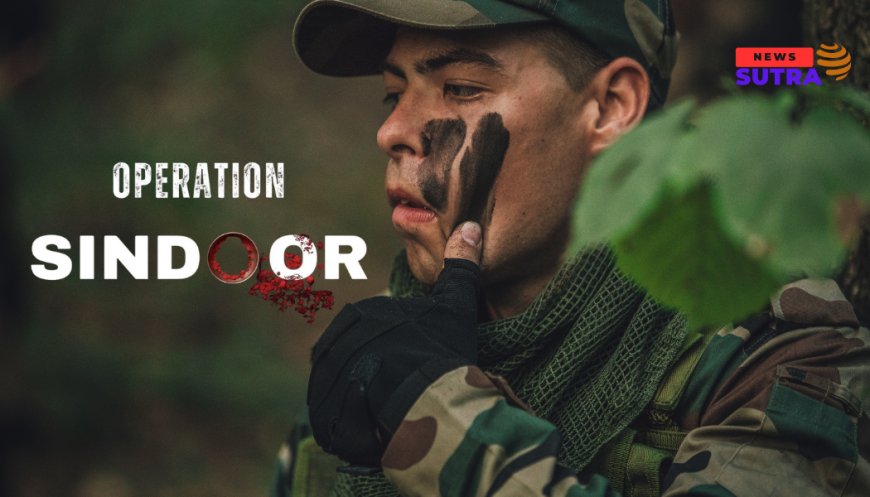Operation Sindoor: Decoding the Diplomatic Ripples and Political Fallout in South Asia
Operation Sindoor has triggered significant political reverberations and diplomatic recalibrations in South Asia. Discover the deeper implications of this controversial military maneuver and its potential to reshape regional relations.

In the early hours of April 2025, Operation Sindoor—a high-risk cross-border military maneuver—was launched with strategic precision. Within hours, headlines erupted across South Asia. What seemed like a tactical operation to neutralize high-value threats swiftly evolved into a geopolitical flashpoint, drawing sharp responses not just from neighboring countries but from global diplomatic channels.
The operation has since become a litmus test for political leadership, foreign policy strategy, and media credibility. Let’s break down the core of Operation Sindoor, the political aftershocks it has ignited, and how diplomacy is being recalibrated in its wake.
What Was Operation Sindoor?
Launched by India's elite Para Special Forces, Operation Sindoor was ostensibly aimed at disrupting insurgent networks suspected to be planning a large-scale attack within Indian borders. According to a report by The Diplomat, the operation was carried out in a contested border zone, with tactical aerial surveillance and swift ground troop insertion.
While the Indian government called it a "preemptive counterterrorism action," others, including neighboring governments, interpreted it as a sovereignty violation.
The Immediate Political Fallout
1. Domestic Political Reaction
Opposition parties in India immediately questioned the timing and intent of the operation. Critics labeled it a “nationalistic diversion” to shift focus from ongoing domestic unrest and economic challenges. A senior leader from the Congress party was quoted saying, "We support national security, but this must not become a tool for electoral mileage."
Meanwhile, the ruling coalition defended the move as a "bold and necessary decision", reinforcing their image as strong defenders of national security.
For a detailed look at India's shifting political discourse, see Observer Research Foundation's analysis.
2. International Response
Operation Sindoor drew strong condemnation from the neighboring country where the operation allegedly took place. Its Foreign Ministry issued a formal protest, demanding an immediate explanation at the United Nations Security Council (UNSC).
Countries like the United States and the UK called for restraint and de-escalation, while others—such as France—subtly supported India's right to self-defense.
The Brookings Institution’s piece on regional counterterrorism policy adds useful context to this complex landscape.
Diplomatic Repercussions: Recalibrating Alliances
A. India’s Strategic Position
Despite criticism, Operation Sindoor has strengthened India's strategic image as a nation willing to take decisive action. The Ministry of External Affairs swiftly engaged in back-channel diplomacy with allies like Japan, Australia, and the EU.
Additionally, India's growing cooperation within the QUAD framework gave it a cushion of international support.
B. China’s Calculated Silence
Interestingly, China has remained mostly silent, despite its vested interests in the region. Analysts suggest this could be part of a strategic wait-and-watch approach, especially as Beijing is focused on its own border dynamics and economic interests.
Insight: Council on Foreign Relations – China's Diplomacy in South Asia
Media, Public Sentiment, and Narrative Control
The media played a crucial role in shaping public opinion about Operation Sindoor. While mainstream outlets focused on valorizing the soldiers involved, independent platforms raised questions about the transparency and legal basis of the mission.
On social media, Operation Sindoor became a trending topic, sparking fierce debates. Analysts have warned against the rise of jingoism and stressed the need for critical engagement with defense narratives.
Dive deeper into media ethics and war reporting via Reuters Institute for the Study of Journalism.
What’s Next? Scenarios to Watch
-
UNSC Deliberations: If the matter escalates to a full-blown hearing, India’s legal justification and international alliances will be tested.
-
Bilateral Talks or Escalation: Whether diplomatic backchannels succeed in avoiding further hostilities remains uncertain.
-
Public Accountability: Parliamentary debates and media inquiries may force the government to disclose more details.
-
Regional Domino Effect: Similar operations by other countries could become more frequent, potentially destabilizing already volatile borders.
Conclusion: Strategic Brilliance or Diplomatic Gamble?
Operation Sindoor may well go down in history as one of the most controversial military operations in South Asia's recent memory. It has reaffirmed India’s capability and willingness to act decisively but has also opened a Pandora’s box of diplomatic complexities and political narratives.
As the region braces for its consequences, the world watches closely. The final verdict—whether this was a masterstroke or a misstep—will depend on what comes next.


















































